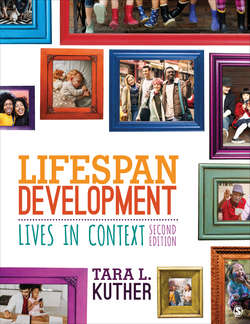Читать книгу Lifespan Development - Tara L. Kuther - Страница 377
На сайте Литреса книга снята с продажи.
Applying Developmental Science Children’s Suggestibility
ОглавлениеRepeated questioning about an event that may or may not have happened may increase suggestibility in children.
Gordon Scammell / Alamy Stock Photo
The accuracy of children’s memory, especially their vulnerability to suggestion, is an important topic because children as young as 3 years have been called upon to relate their memories of events that they have experienced or witnessed, including abuse, maltreatment, and domestic violence (Pantell & Committee on Psychosocial Aspects of Child and Family Health, 2017). Young children can recall much about their experiences, often material that is relevant and accurate (Cauffman, Shulman, Bechtold, & Steinberg, 2015). How suggestible are young children? Can we trust their memories?
Research suggests that repeated questioning may increase suggestibility in children (La Rooy, Lamb, & Pipe, 2011). For example, in one study, preschoolers were questioned every week about events that had either happened or not happened to them; by the 11th week, nearly two thirds of the children falsely reported having experienced an event (Ceci, Huffman, Smith, & Loftus, 1994). Preschool-age children may be more vulnerable to suggestion than school-age children or adults (Brown & Lamb, 2015). When children were asked if they could remember several events, including a fictitious instance of getting their finger caught in a mousetrap, almost none of them initially recalled these events. However, after repeated suggestive questioning, more than half of 3- and 4-year-olds and two fifths of 5- and 6-year-olds said they recalled these events—often vividly (Poole & White, 1991, 1993).
Young children’s natural trust in others may enhance their suggestibility. In one study, 3-year-olds who received misleading verbal and visual information from an experimenter about a sticker’s location continued to search in the wrong, suggested location despite no success (Jaswal, 2010). In another study, 3- to 5-year-old children watched as an adult hid a toy in one location, then told the children that the toy was in a different location. When retrieving the toy, 4- and 5-year-olds relied on what they had seen and disregarded the adult’s false statements, but 3-year-olds deferred to what the adult had said, despite what they had directly observed (Ma & Ganea, 2010).
In some cases, children can resist suggestion. For example, in one study, 4- and 7-year-old children either played games with an adult confederate (e.g., dressing up in costumes, playing tickle, being photographed) or merely watched the games (Ceci & Bruck, 1998). Eleven days later, each child was interviewed by an adult who included misleading questions that were often followed up with suggestions relevant to child abuse. Even the 4-year-olds resisted the false suggestions about child abuse. Children also vary. Some children are better able to resist social pressure and suggestive questioning than others (Uhl, Camilletti, Scullin, & Wood, 2016).
Children are more vulnerable than adults, but adults are not entirely resistant to suggestion. For example, recent research suggests that in some situations, adults are more likely than children to make quick associations between suggestive details about unexperienced events and prior experiences, making them more vulnerable to suggestion (Otgaar, Howe, Merckelbach, & Muris, 2018). Like children, adults who are exposed to information that is misleading or inconsistent with their experiences are more likely to perform poorly during memory interviews—and repeated questioning has a similar effect on performance (Wysman, Scoboria, Gawrylowicz, & Memon, 2014).
